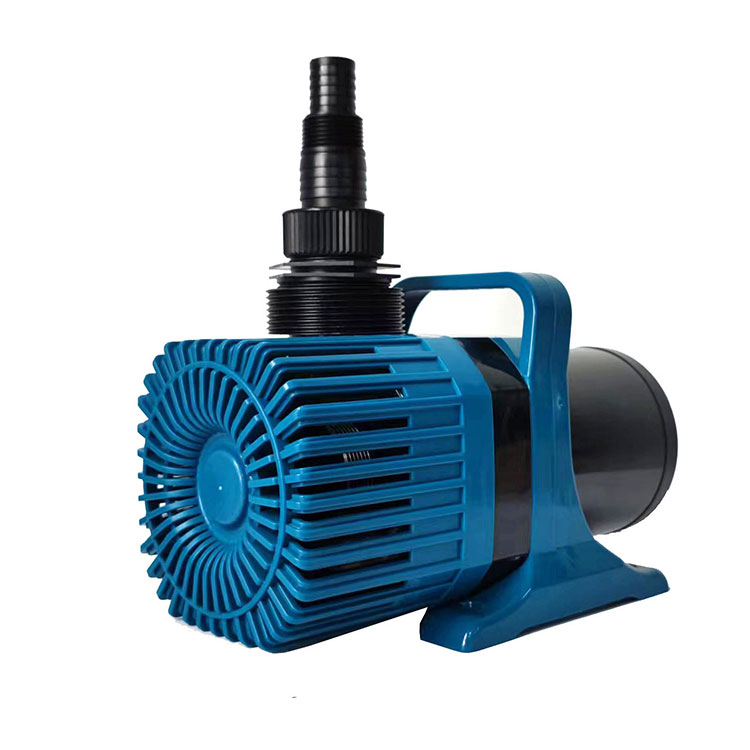Harnessing Efficiency: Exploring Energy-Efficient Options for Garden Water Pumps
2024-03-06
In today's world, sustainability and energy efficiency are key considerations in every aspect of life, including gardening and landscaping. As we strive to minimize our environmental footprint and reduce energy consumption, it's essential to seek out efficient solutions for tasks such as watering our gardens. Fortunately, there are a variety of energy-efficient options available for garden water pumps that can help conserve resources while still providing optimal performance. In this blog, we'll explore some of these options and their benefits for eco-conscious gardeners.
1. Solar-Powered Water Pumps:
Solar-powered water pumps harness the energy of the sun to power the pump's motor, eliminating the need for electricity or fuel. These pumps typically consist of solar panels, a controller, and a pump unit, all of which work together to convert sunlight into electricity to drive the pump. Solar-powered pumps are highly sustainable and environmentally friendly, as they produce zero emissions and rely on renewable energy sources. They are ideal for remote or off-grid locations where access to electricity is limited or impractical.
Benefits:
- Environmentally friendly: Solar-powered pumps produce clean, renewable energy and reduce reliance on fossil fuels.
- Cost-effective: Once installed, solar-powered pumps have minimal operating costs, as they utilize free solar energy.
- Low maintenance: Solar pumps have fewer moving parts compared to traditional pumps, resulting in lower maintenance requirements and costs.
- Versatile: Solar-powered pumps can be used for various applications, including irrigation, water supply, and fountain operation, making them suitable for a wide range of garden setups.
2. Variable-Speed Pumps:
Variable-speed pumps are designed to adjust their speed and power consumption based on the required flow rate and pressure. Unlike traditional single-speed pumps, which operate at a constant speed regardless of demand, variable-speed pumps can vary their speed to match the specific needs of the application. By operating at lower speeds when less flow or pressure is required, variable-speed pumps can significantly reduce energy consumption and operating costs while maintaining optimal performance.
Benefits:
- Energy efficiency: Variable-speed pumps consume less energy by operating at lower speeds during periods of lower demand.
- Cost savings: By reducing energy consumption, variable-speed pumps can result in significant cost savings on electricity bills over time.
- Quiet operation: Variable-speed pumps operate at lower speeds, resulting in quieter operation and reduced noise levels compared to single-speed pumps.
- Extended lifespan: The ability to operate at lower speeds reduces wear and tear on pump components, resulting in a longer lifespan and reduced maintenance requirements.
3. Energy-Efficient Motors:
Many garden water pumps are equipped with energy-efficient motors that meet or exceed industry standards for energy efficiency. These motors are designed to minimize energy loss and optimize performance, resulting in lower energy consumption and operating costs. Energy-efficient motors may incorporate features such as improved insulation, advanced rotor designs, and variable-speed capabilities to maximize efficiency and reduce power consumption.
Benefits:
- Reduced energy consumption: Energy-efficient motors minimize energy loss and optimize performance, resulting in lower electricity bills and reduced environmental impact.
- Enhanced performance: Energy-efficient motors deliver consistent and reliable performance while minimizing heat generation and noise levels.
- Regulatory compliance: Energy-efficient motors meet or exceed industry standards and regulatory requirements for energy efficiency, ensuring compliance with environmental regulations.
- Longevity: Energy-efficient motors are designed to withstand demanding operating conditions and maintain performance over an extended lifespan, reducing the need for frequent replacement.
In conclusion, there are several energy-efficient options available for garden water pumps that can help gardeners minimize their environmental footprint and reduce energy consumption. Whether you opt for solar-powered pumps, variable-speed pumps, or energy-efficient motors, investing in sustainable pump solutions can benefit both the environment and your wallet in the long run. By harnessing the power of efficiency, gardeners can maintain lush, healthy gardens while promoting sustainability and conservation for future generations.



